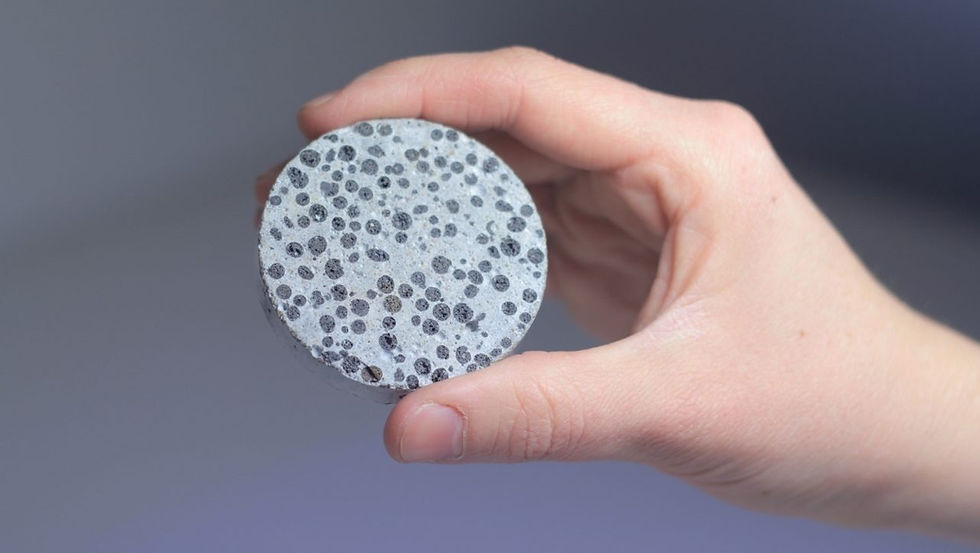BioCement: Building with Bacteria to Fight Climate Change
- Norwood Davis
- Dec 20, 2024
- 2 min read
Concrete is one of the most widely used construction materials in the world, but it’s also a major contributor to global carbon emissions, accounting for about 8% of the total. Enter bio-cement, a groundbreaking material made using bacteria to bind particles together. Instead of emitting large amounts of CO₂ like traditional cement, bio-cement captures and stores carbon during its production.
Here’s how it works: bacteria such as Sporosarcina pasteurii are introduced to a solution of calcium and sand. The bacteria produce an enzyme that creates calcium carbonate—a natural form of cement. This process mimics how coral reefs form in nature, using biological processes to create a strong, durable material.
Recently, researchers at the University of Colorado Boulder have made strides in scaling bio-cement for construction. They’ve demonstrated its use in everything from bricks to 3D-printed structures, opening the door for sustainable and cost-effective building solutions.
What excites me most about bio-cement is its potential to redefine the environmental footprint of construction. Unlike traditional materials, it’s regenerative and could eventually replace concrete in many applications. I find the nature-inspired approach particularly fascinating. Mimicking coral reefs connects architecture to the environment in a deeply symbolic way—our built environments could someday feel less like intrusions and more like extensions of nature.
But bio-cement also raises practical questions. How durable is it compared to traditional concrete? Can it handle extreme weather, especially in regions prone to hurricanes or earthquakes? Its current cost is higher than regular cement, but as demand grows and production scales up, that could change.
This innovation also inspires me to think about other biological processes we could harness. Could bacteria or fungi one day help us create carbon-negative insulation or self-repairing walls? Bio-cement feels like the first step in an entirely new direction for sustainable architecture.


Comentarios